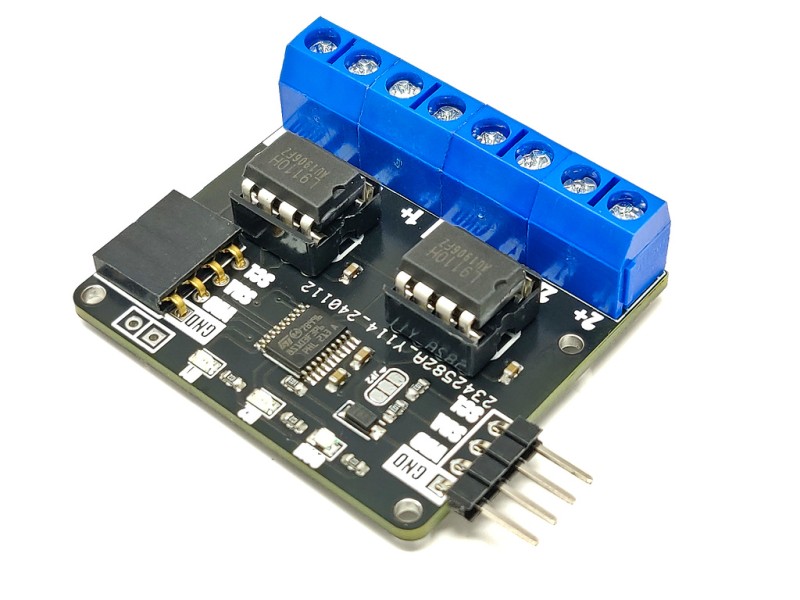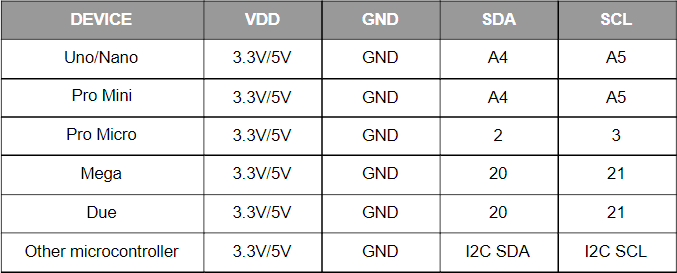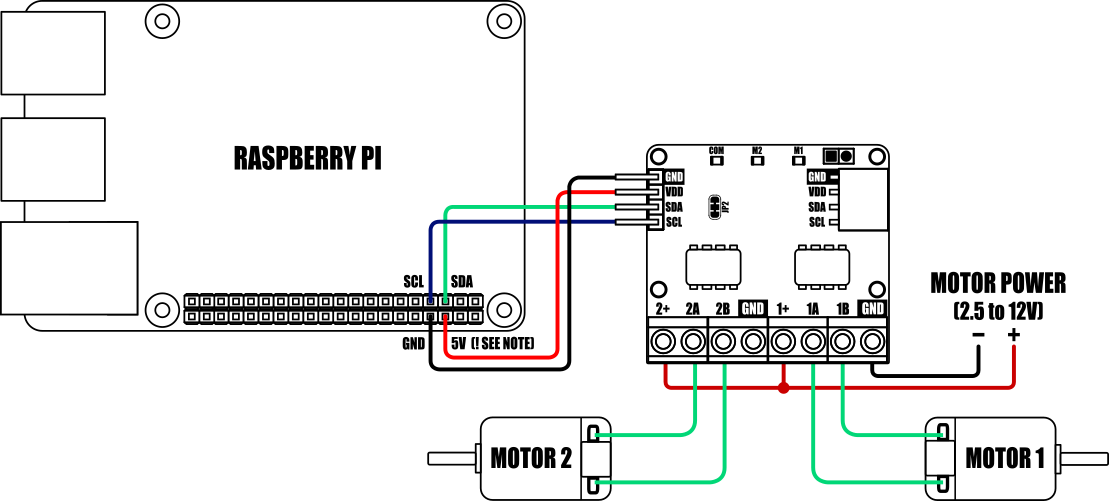SmartRFy Sensor Module
The SmartRFy sensor module adds the option to remotely monitor various sensors via a SmartRFy...










The mLink L9110 motor controller is a serial (I2C) 2 channel DC motor driver that is capable of driving up to two DC motors at a maximum current of 800mA per motor. It is capable of independently controlling the motors direction and speed with a resolution of 255 steps in each direction.
The mLink L9110 motor controller is a serial (I2C) 2 channel DC motor driver that is capable of driving up to two DC motors at a maximum current of 800mA per motor. It is capable of independently controlling the motors direction and speed with a resolution of 255 steps in each direction.
If control of more than 2 motors is required multiple modules can be linked together and controlled from the same I2C bus. The module includes screw terminals for convenient connector of the motors and external motor power.
Compatible with microcontrollers equipped with an I2C interface, including popular Arduino models, wireless ESP devices, and Raspberry Pi, this module offers versatile control options. As part of the mLink series, it seamlessly integrates with other mLink modules. This means you can easily daisy-chain multiple mLink modules, enabling centralised control through a single serial interface.
For Arduino users you can use the mLink library (see below for library and examples) to control any type of mLink module. Only one single instance of the library is needed to control multiple types of mLink modules resulting in very little resource overhead and therefore making it great for Arduinos with small amounts of memory and pin counts.
For Raspberry Pi users we have a Python module which can be installed via pip or downloaded and installed directly from our forum. Please see the mLink Python forum thread for requirements and download link here: viewtopic.php?f=131&t=3062&p=8592#p8592
Module code: HCMODU0199 Supply voltage (VDD): 3.3V to 5.5V Current consumption (idle): TBA 6mA I2C Interface speed: 400kbits/s (fast mode) I2C default address (HEX): 0h5D Maximum number of modules: 5 with pullups fitted, 112 with pullups removed* Motor supply voltage (via 1+ & 2+): 2.5V to 12V Motor max current (continuous): 800mA per channel Motor speed resolution: 256 steps in both forward and reverse directions Motor duty cycle time: 12.8ms Module dimensions ex headers (LxWxH): 41mm x 37mm x 13mm
*Note the maximum number of connected modules will depend on cable lengths and power requirements of each module. Do not exceed 5 mLink modules connected in series with I2C pullups fitted to all modules. For disconnecting pullups see forum post.
Arduino Connection Example:

Raspberry Pi Connection Example:
Please note: when connecting to a Raspberry Pi the mLink modules I2C pullup resistors should be removed. See the 'Removing the modules I2C pullup resistors' section below for more information.
More information, including example sketches, library download, spec and register map available on our support forum here.
The SmartRFy sensor module adds the option to remotely monitor various sensors via a SmartRFy...
The SmartRFy digital Rx module provides a set of 4 digital output pins which can be remotely...
Our hugely popular low cost 8 channel analyser (HCTEST0006) is designed to work with the...
Additional add-on for our V2 4x4x4 Cube Kits. This PCB template has been designed to make...
We've partnered up with the fabulous guys over at EDTracker to bring to you the EDTracker...
This is the latest Revision 3 PCB which allows you to simplify your build of a DIY EDTracker -...
The 2004 SmartLCD module is a serially controlled 4 line by 20 character alphanumeric LCD...
This robotic car kit is a complete kit of parts, including electronics, that will allow you to...
The Hobby Components prototyping shield for the Arduino Uno allows you to add your own custom...
Our very own version of the popular Arduino Mega development board (HCARDU0092). It hast been...